
The HyperText Markup Language, or HTML is the standard markup language for documents designed to be displayed in a web browser. It can be assisted by technologies such as Cascading Style Sheets (CSS) and scripting languages such as JavaScript.
A relational database is a digital database based on the relational model of data, as proposed by E. F. Codd in 1970. A system used to maintain relational databases is a relational database management system (RDBMS). Many relational database systems have an option of using the SQL for querying and maintaining the database.
New Technology File System (NTFS) is a proprietary journaling file system developed by Microsoft. Starting with Windows NT 3.1, it is the default file system of the Windows NT family. It superseded File Allocation Table (FAT) as the preferred filesystem on Windows but is supported in Linux and BSD as well. NTFS reading and writing support is provided using a free and open-source kernel implementation known as NTFS3 in Linux and the NTFS-3G driver in BSD. Windows can convert FAT32/16/12 into NTFS without the need to rewrite all files. NTFS uses several files typically hidden from the user to store metadata about other files stored on the drive which can help improve speed and performance when reading data. Unlike FAT and High Performance File System (HPFS), NTFS supports access control lists (ACLs), filesystem encryption, transparent compression, sparse files and file system journaling. NTFS also supports shadow copy to allow backups of a system while it is running, but the functionality of the shadow copies varies between different versions of Windows.
DYS is an American straight edge hardcore punk band from Boston, Massachusetts, who were part of the "Boston Crew" in the 1980s, along with contemporaries such as SSD and Negative FX. The group later expanded their sound, becoming one of the first hardcore bands to veer into heavy metal.

Stanley William Turrentine was an American jazz tenor saxophonist. He began his career playing R&B for Earl Bostic and later soul jazz recording for the Blue Note label from 1960, touched on jazz fusion during a stint on CTI in the 1970s. He was described by critic Steve Huey as "renowned for his distinctively thick, rippling tone [and] earthy grounding in the blues." In the 1960s Turrentine was married to organist Shirley Scott, with whom he frequently recorded, and he was the younger brother of trumpeter Tommy Turrentine.
Linkword is a mnemonic system promoted by Michael Gruneberg since at least the early 1980s for learning languages based on the similarity of the sounds of words. The process involves creating an easily visualized scene that will link the words together. One example is the Russian word for cow : think and visualize "I ran my car over a cow."
Negative FX was a hardcore punk band from Boston, formed in 1981. Though the band lasted only a short time, playing a total of five shows, the band was well known for their involvement in the local straight edge scene of the early 1980s. Along with members of the bands DYS and SS Decontrol (SSD), Negative FX was part of the "Boston Crew", a group of social friends who traveled around the country with SSD and other Boston hardcore bands.
The title mnemonist refers to an individual with the ability to remember and recall unusually long lists of data, such as unfamiliar names, lists of numbers, entries in books, etc. Some mnemonists also memorize texts such as long poems, speeches, or even entire books, of fiction or non-fiction. The term is derived from the term mnemonic, which refers to a strategy to support remembering, but not all mnemonists report using mnemonics. Mnemonists may have superior innate ability to recall or remember, in addition to relying on techniques.
"Funes the Memorious" is a fantasy short story by Argentine writer Jorge Luis Borges (1899–1986). First published in La Nación of June 1942, it appeared in the 1944 anthology Ficciones, part two (Artifices). The first English translation appeared in 1954 in Avon Modern Writing No. 2.
Solomon Veniaminovich Shereshevsky, also known simply as 'Ш' ('Sh'), 'S.', or Luria's S was a Russian journalist and mnemonist active in the 1920s. He was the subject of Alexander Luria's case study The Mind of a Mnemonist (1968).
Jonathan Anastas is an American, Los Angeles-based marketing & advertising executive, and a musician who co-founded a number of Boston hardcore punk bands.
Biota is an American experimental electronic music ensemble.
The Massachusetts Department of Youth Services (DYS) is a state agency of Massachusetts. Its Administrative Office is headquartered in 600 Washington Street Boston. The agency operates the state's juvenile justice services.
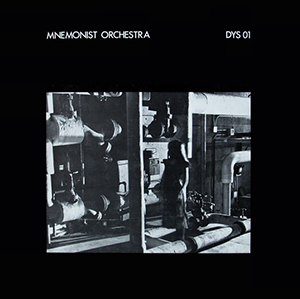
Mnemonist Orchestra is the eponymously titled debut studio album of the free improvisation ensemble Mnemonist Orchestra, released in 1979 by Dys Records.

Horde is the third studio album by the free improvisation ensemble Mnemonist Orchestra, released in 1981 by Dys Records.
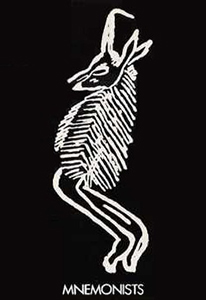
Roto-Limbs is a studio album by the free improvisation ensemble Mnemonist Orchestra, issued as a limited edition, cassette-only release in 1981 by Dys Records.
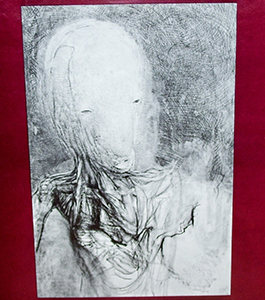
Biota is the fourth studio album by the free improvisation ensemble Mnemonist Orchestra, released in 1982 by Dys Records.
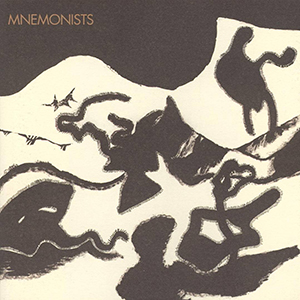
Gyromancy is the fifth studio album by the free improvisation ensemble Mnemonist Orchestra, released in 1984 by Dys Records.
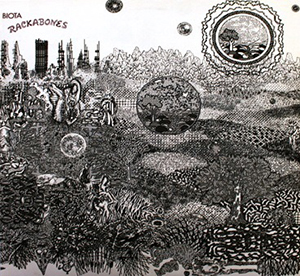
Rackabones is the sixth studio album by the free improvisation ensemble Biota, released in 1985 by Dys Records. The album marked the official beginning of Biota as an ensemble separate from the Mnemonists name.

Live in Trondheim, Berlin & Limoges, Vol. 2 is a 1994 live album of improvised experimental music by Chris Cutler and Fred Frith. It was recorded in Limoges, France on 13 December 1979; at the Nordlydd Contemporary Music Festival in Trondheim, Norway on 16 October 1991; and in Tacheles, Berlin, Germany on 2 November 1991. The album was released by Recommended Records in 1994. It was Frith and Cutler's second collaborative album.









